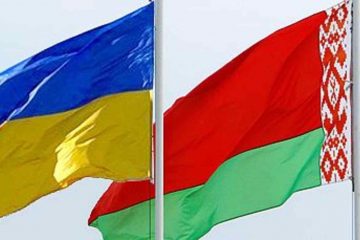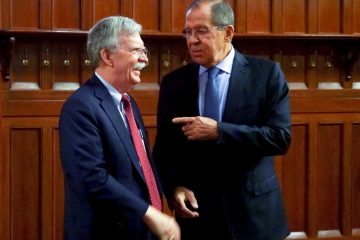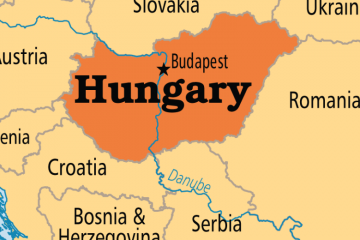FOR the past year, Ukraine’s government has enlisted the help of the country’s powerful oligarchs in fighting its war against pro-Russian separatists. This week a new war opened up, pitting the government against one of the very oligarchs it had relied upon. On March 25th Petro Poroshenko, Ukraine’s president, forced Ihor Kolomoisky, a business magnate, to resign from his post as governor of the central region of Dnipropetrovsk. Mr Kolomoisky had financed pro-Kiev battalions and played a vital role in stemming the spread of separatism. Yet after Mr Kolomoisky deployed his personal militia in Kiev to block the government from regulating his business interests, the president had no choice but to sack him.
The clash was the biggest skirmish yet in an unfolding confrontation between the government and the oligarchy. It may be the single most important front in the struggle for Ukraine’s future. Sergii Leshchenko, a former investigative journalist and now a reformist member of parliament, calls it the second phase of the Maidan revolution: “Maidan removed [the former president, Viktor] Yanukovych, but not the oligarchic system.” But it could mean war with the oligarchs at a time when Ukraine can ill afford instability.
Ukraine’s oligarchs amassed their fortunes through shady privatisation deals in the 1990s. Mr Kolomoisky collected holdings in oil and gas, aviation, banking, and media. Last year he began financing volunteer battalions to supplement the country’s decrepit army. By defending Ukraine, Mr Kolomoisky was also protecting his business empire. His bank, PrivatBank, offered rewards of $10,000 for captured separatists and equipped some of its armoured cars for military use. In March last year Mr Kolomoisky was given his governorship.
Other magnates have had less of a formal role in government than Mr Kolomoisky. But unlike Russia’s oligarchs, whom Vladimir Putin pushed out of politics, Ukraine’s retain unfettered influence over the country’s leadership. Ownership of the media allows them to act as kingmakers. A closed party-list voting system means that their lackeys can slip into parliament unchallenged. Corrupt courts do their bidding. As a result, business and government do not merely coexist, they are often one and the same.
It was a challenge to this nexus that led to the outburst from Mr Kolomoisky. At issue is his stake in a state oil company, UkrNafta. Previously, Ukrainian law required 60% of shares for a quorum at meetings of state-owned firms, giving Mr Kolomoisky, with a 42% stake, de facto control. He milked the company for cash, withholding billions of hryvnias in state dividends. Mr Kolomoisky claims that in the early 2000s he paid $5m a month to Viktor Pinchuk, another oligarch, to protect his stake in the lucrative enterprise. Mr Pinchuk’s representatives deny the claims.
On March 19th reformists in parliament passed a law reducing the quorum requirement at state firms to a simple majority, denying Mr Kolomoisky a veto. Some days later a group of armed men, apparently loyal to Mr Kolomoisky, arrived in a military vehicle without number plates and built metal barricades around UkrNafta’s headquarters. Earlier in the week Mr Kolomoisky had appeared with a phalanx of guards at another state-owned oil company, UkrTransNafta, after the government tried to replace a manager loyal to him. At both companies, Mr Kolomoisky ultimately backed down.
Ukraine’s reformers have wanted to wean the country off the oligarchs ever since the Maidan revolution, with only limited success. The margin of graft on government tenders has fallen from about 40% to 10%, say anti-corruption activists. Some notorious schemes have closed, including, last week, UkrEcoResoursy, a state-owned recycling firm that in reality recycled only cash for its masters.
Yet behind a façade of reforms, corruption continues. If bribes are smaller, that is partly because Mr Yanukovych monopolised corruption on a grand scale. Now it has returned to its more diffuse pre-Yanukovych form, says Vitaliy Shabunin of the Anti-Corruption Action Centre. Progress comes only where the new elite and Western partners apply pressure together. America sent a signal last year by bringing bribery charges against Dmitry Firtash, another Ukrainian oligarch. He is trapped in Vienna fighting extradition.
True change can only come with a “systemic reset”, says Viktoriya Voytsitska, a new member of parliament who argued for the law on shareholder quorums. Otherwise “we’ll just feed the oligarch wars.” The oligarchs are constantly struggling with each other over their shares of the economic pie. Mr Pinchuk and Mr Kolomoisky are fighting a court case in London. Mr Poroshenko, an oligarch himself, has fed resentment by appointing business partners and friends to government posts. He has also reneged on a campaign promise to sell his confectionery company, Roshen. Unless oligarchs transform as a class into law-abiding big businesses, their assets will simply be transferred from one to another, says Ms Voytsitska.
UkrTransNafta epitomises these risks. Mr Kolomoisky calls the government’s attempt to replace his loyal manager at the company a “raider attack”. The new manager, a former officer in the security services, was appointed without an open competition. He has ties to a member of parliament who is one of Mr Kolomoisky’s business competitors. “It was ugly,” says Ms Voytsitska.
Perhaps Mr Kolomoisky has secretly been compensated for his ousting. Yulia Mostovaya, editor of Zerkalo Nedeli, a newspaper, says backroom deals could include a refinancing of PrivatBank or the promise of neutral management at UkrNafta and UkrTransNafta. If Mr Kolomoisky gets nothing, his peace deal with Mr Poroshenko may not hold, and Mr Kolomoisky could seek to strike back.
But not by undermining the war effort. That would not serve Mr Kolomoisky’s interests now any more than it did last spring, argues Volodymyr Fesenko of Penta, a Kiev-based think-tank. Instead, his ties with the National Guard and his ownership of PrivatBank could help him to claw back influence. Local elections scheduled for October will present another opportunity to accrue political allies. The process of “deoligarchisation”, says Mr Fesenko, will be “complex and painful”. But at least it has begun.






Comments